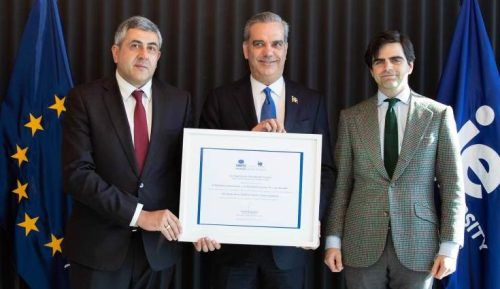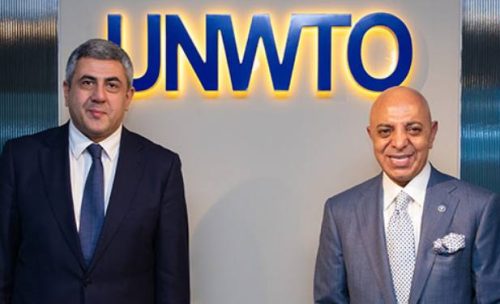Dominican Republic with First UNWTO Tourism Investment Guide
https://www.travelfoundation.org/wp-content/uploads/2022/01/dominican-republic-with-first-unwto-tourism-investment-guide.jpg 500 302 wttc2 wttc2 https://secure.gravatar.com/avatar/8ceb3c33b6d7e246ff938130ace90a65?s=96&r=g
 Santo Domingo, Dominican Republic, January 22, 2022 / TRAVELINDEX / UNWTO has launched the first in a series of tourism investment guidelines focused on a specific country. Developed alongside the Ministry of Tourism of the Dominican Republic and the national Export and Investment Center (PRODOMINICANA), the new guide provides key insights for investors, with the aim of boosting foreign direct investment in the Caribbean destination.
Santo Domingo, Dominican Republic, January 22, 2022 / TRAVELINDEX / UNWTO has launched the first in a series of tourism investment guidelines focused on a specific country. Developed alongside the Ministry of Tourism of the Dominican Republic and the national Export and Investment Center (PRODOMINICANA), the new guide provides key insights for investors, with the aim of boosting foreign direct investment in the Caribbean destination.
Launched against the backdrop of the FITUR tourism trade fair in Madrid, the Investment Guidelines represent a comprehensive tool for parties interested in FDI opportunities. In particular, it aims to attract and promote and retain investment in sustainable tourism initiatives in the Dominican Republic, including those that provide local jobs and build greater resilience across the sector. The guide showcases the potential of closer public-private collaboration and makes clear the importance of directing investments towards building new tourism business models centres on innovation and sustainability.
As the UNWTO guide notes, the Dominican Republic represents one of the most competitive opportunities for investors for a number of reasons, excellent geographic location, solid legal framework, economic stability, and modern infrastructure.
Leading investment destination
According to data compiled by UNWTO and fDi Markets of the Financial Times, some 26 tourism projects in the Dominican Republic received about US$5.7 billion in tourism greenfield investments between 2016 and 2020. At the same time, the country has experienced an annual rate of growth in GDP of around 5% for the past 25 years, double the regional average. Over recent years, the Government of the Dominican Republic has worked to further attract FDI, including through the restructuring of free trade zones, incentives for investment in tourism and the signing of DR-CAFTA. (Dominican Republic-Central America Free Trade Agreement).
In 2021, the economy of the Dominican Republic recovered and reached pre-pandemic levels of growth. Notably, around 38% of this recovery was the product of the tourism sector. According to figures from the Ministry of Tourism (MITUR), as of December 2021, around 300,000 jobs were secured by the recovery of tourism, the result of the Responsible Tourism Recovery Plan led by the President of the Republic, Luis Rodolfo Abinader Corona. The Plan, which saw tourism workers vaccinated as early as possible, allowed the country to be among the first of all global destinations to reopen its borders.
First published at TravelCommunication.net – Global Travel News
First published at TravelNewsHub.com – Global Travel News











